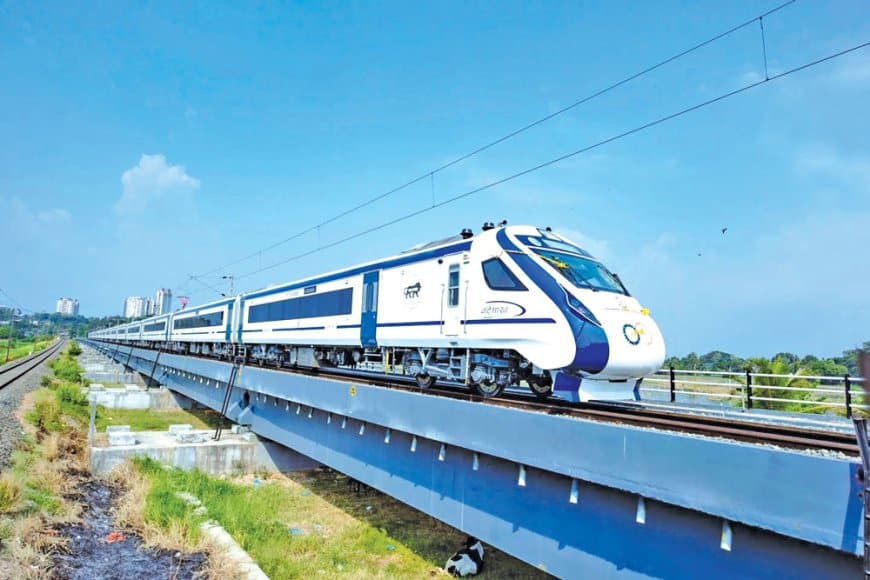Indian Railways Announces Minor Fare Increase: Updated Ticket Prices

Indian Railways has announced a slight increase in train fares, set to take effect from July 1, 2025. This adjustment aims to enhance service sustainability and streamline fare calculations, as confirmed by the Ministry of Railways. The new fare structure follows the updated Passenger Fare Table from the Indian Railway Conference Association (IRCA). Importantly, tickets purchased before this date will retain their original prices, while necessary updates are being made to ticketing platforms.
Details of the Fare Increase
The fare adjustments will impact various classes across the railway network, with specific changes outlined for different categories. For Regular Non-AC Classes on non-suburban trains, the fare for Second Class will see a minor increase of half paisa per kilometer, but this will only apply to journeys exceeding 500 kilometers. For distances between 501 and 1500 kilometers, passengers can expect a hike of Rs 5, while those traveling between 1501 and 2500 kilometers will face a Rs 10 increase. For journeys exceeding 2500 kilometers, the fare will rise by Rs 15.
In the Sleeper Class and First Class, the fare will also increase by half paisa per kilometer. For Non-AC Mail and Express services, the fare will rise by one paisa per kilometer across all classes, including Second Class, Sleeper Class, and First Class. The adjustments will apply to all premium and special services, including popular trains such as Vande Bharat, Rajdhani, and Shatabdi, among others.
Impact on Suburban and Season Ticket Fares
Despite the overall fare increase, fares for suburban journeys and season tickets will remain unchanged for both suburban and non-suburban routes. This decision aims to ensure that daily commuters are not adversely affected by the fare adjustments. The Ministry of Railways has emphasized that these changes are part of a broader effort to enhance the sustainability of rail services while maintaining affordability for regular passengers.
The revised fare structure is designed to be transparent and straightforward, allowing passengers to easily understand the new pricing. The Indian Railways is also updating its Passenger Reservation System (PRS), Unreserved Ticketing System (UTS), and manual ticketing platforms to reflect these changes, ensuring a smooth transition for travelers.
Ancillary Charges and Existing Fare Guidelines
While the fare adjustments will affect ticket prices, ancillary charges such as reservation fees, superfast surcharges, and additional fees will remain constant. The Goods and Services Tax (GST) will continue to be applied according to existing regulations, and the current fare rounding guidelines will also stay in effect. This consistency in ancillary charges aims to provide clarity and predictability for passengers as they plan their travel.
The Indian Railways is committed to improving its services and ensuring that fare adjustments are made transparently. As the new fare structure rolls out, passengers are encouraged to stay informed about the changes and how they may affect their travel plans in the coming years.
Observer Voice is the one stop site for National, International news, Sports, Editor’s Choice, Art/culture contents, Quotes and much more. We also cover historical contents. Historical contents includes World History, Indian History, and what happened today. The website also covers Entertainment across the India and World.

